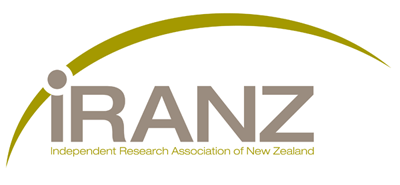IRANZ Christmas communiqué
Firstly, Season’s Greetings to all our readers in the science community and beyond. We hope that you all take some much-needed time off to spend with family and friends this festive season and recharge your wellbeing cup to make ready to tackle the challenges laid before us in the coming year.
The past couple of months has provided interesting times for our Independent Research Organisations (IROs): the Government’s Te Ara Paerangi - Future Pathways White Paper was released on 6 December; IRANZ has welcomed a couple of new member organisations; several members have been successful in the recent Marsden Funding round; and we say goodbye to one of our members – PlantTech, who unfortunately has had to shut its doors.
Te Ara Paerangi - Future Pathways White Paper
IRANZ members read with interest the Government’s Te Ara Paerangi - Future Pathways white paper released on 6 December.
IRANZ welcomes the early emphasis of Te Ara Paerangi on developing research policies and plans for Aotearoa New Zealand, embracing mātauranga Māori in our Research, Science and Innovations system, and promoting secure and attractive career development paths for a diversity of new researchers. All of these are important issues for Independent Research Organisations.
Volker Kuntzsch, Chief Executive of Cawthron Institute, reflects the views of his IRANZ colleagues when he comments that, “Cawthron Institute is pleased to see the white paper set new aspirations for Aotearoa New Zealand’s research, science and innovation system. We are strongly supportive of some of the changes that are proposed – in particular greater investment in research, science and innovation, the development of an RSI Te Tiriti o Waitangi Statement, and a move to mission-led science that directs resource towards research that will achieve the broadest social, cultural, environmental, and economic benefits. Given the urgent nature of the challenges facing society, we support research priorities that quickly redirect resource towards excellent and impactful science.
“However, the devil is in the detail: how these aspirations will be achieved is almost as important as the aspirations themselves. As New Zealand’s largest independent science organisation, Cawthron Institute is eager to see independent research organisations play a significant role in helping to set national research priorities. Ideally, we would like to see an independent and diverse body tasked with setting our national research priorities, including experts and people from all walks of life, across all demographics. In particular, we want to see independent Māori research organisations empowered to take a leadership role in the reform process to ensure that research priorities are set by Māori, for Māori.”
IRANZ welcomes all opportunities to contribute to this future direction and revitalise Aotearoa New Zealand’s research, science and innovation system. IROs with wide support from communities and industry are a key part of Aotearoa’s science ecosystem and infrastructure. It is important that this is taken on board as Te Ara Paerangi moves on to building a coordinated, adaptable, and resilient Research, Science and Technology ecosystem and infrastructure.
Welcome to our new members
IRANZ welcomes new members the Gillies McIndoe Research Institute and Scarlatti.
Gillies McIndoe’s research team frequently makes the national news with the innovative work in medical science – particularly the treatment of vascular birthmarks, fibrotic conditions, and cancer. The team is internationally recognised for their ground-breaking work, which spans in vitro methodologies, molecular biology, proteomics, metabolomics, and drug development through to physiology, clinical trials, and novel organoid models. They aspire to turn scientific discovery into therapies and strategies that help people prevent or manage prevalent diseases.
Scarlatti team of specialists use research, evaluation, analytics, and insights to give clarity to the complex and hard-to-measure. Helping organisations to succeed in practice change initiatives, they specialise in the primary industries and tertiary sector while also working across a broad range of other contexts. They turn quantitative and qualitative research into action and work closely with clients to enable them to understand their impact, make sense of the numbers, and make decisions with confidence.
Congratulations to our IROs with successful 2022 Marsden Fund bids
A number of IRANZ members were successful in various Marsden Fund bids in this latest round. Some of their stories are included in the newsletter below, including a partnership between the Auckland Bioengineering Institute and Mātai Research who were successful in a Marsden Fund bid for $870,000 to research using ultra-fast functional MRI scans to map the brains of people who have ADHD; Takarangi Research who will get $870,000 for a new research project to rediscover hidden narratives from Māori oral historical perspectives where kūmara are central threads; Lincoln Agritech, who were awarded $929,000 to devise new ways of measuring sea ice; and the Cawthron Institute, who were successful in three new research projects that involve or are led by Cawthron researchers.
PlantTech
IRANZ is disappointed to lose PlantTech as a member as it is closing its doors in Tauranga and Palmerston North. PlantTech Research was formed to apply cutting edge artificial intelligence and machine learning to the scientific challenges in New Zealand's horticulture industry, with the company attracting some of the best and brightest from around the world, and already they had been making headway in a number of research areas.
IRANZ Chair Dr John McDermott says it seems regrettable to mothball this Regional Research Institute at this early stage of its establishment, and at a time when Te Ara Paerangi is reviewing the whole of Aotearoa New Zealand’s R,S&I priorities and infrastructure. Especially given a recent very favourable economic impact report on PlantTech’s activities from the New Zealand Institute of Economic Research (NZIER), which showed they were delivering a $46 million economic impact nationally, reducing costs, creating new jobs, increasing productivity through innovation, and creating a more sustainable environment to help combat climate change.
“It’s clear to me that this is an example where the Government needs to look at providing Strategic Science Infrastructure Funding, something that should be extended to all strategic Independent Research Organisations,” says John.
Ngā mihi nui and all the best for the festive season.
IRANZ Executive Officer
Dr Rob Whitney
December 2022
Date posted: 8 December 2022

